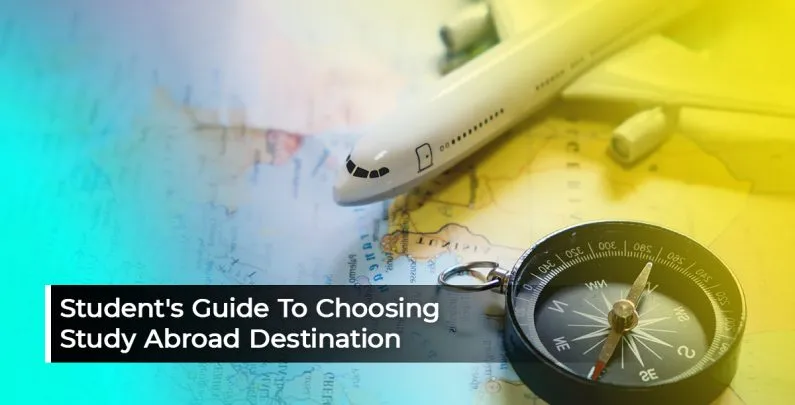Introduction
Choosing the right country to study abroad is one of the biggest decisions you’ll make in your academic journey. With so many options—Canada, the UK, Singapore, and more—it’s easy to feel overwhelmed. But with the right strategy, you can match your education goals, budget, and lifestyle preferences to the perfect destination.
This guide will help Indian students like you choose the best country to study abroad in 2025, based on key decision-making factors.
1. Align with Your Academic and Career Goals
Different countries are known for different academic strengths:
– Canada: Great for tech, engineering, and healthcare
– UK: Strong in law, business, arts, and humanities
– Singapore: Known for finance, management, and innovation
Tip: Choose a country that not only offers your course but also career opportunities post-study in that field.
2. Understand Post-Study Work & PR Opportunities
Post-study work visas and pathways to permanent residency (PR) can be crucial:
– Canada: Offers 2–3 year post-study work permits and a clear PR pathway
– UK: Graduate Route visa (2 years) after completing your degree
– Singapore: Offers work visas but PR can be more competitive
Internal Link: Top PR-Friendly Courses to Study in Canada
3. Compare Tuition Fees & Living Costs
Your budget will influence your choice heavily:
| Country | Avg Tuition (UG/PG) | Monthly Living Cost |
| Canada | ₹9–18 lakhs/year | ₹60,000–₹90,000 |
| UK | ₹10–20 lakhs/year | ₹90,000–₹1.2 lakh |
| Singapore | ₹6–12 lakhs/year | ₹70,000–₹1 lakh |
Tip: Check for scholarship options, part-time job availability, and exchange rates.
4. Visa Process & Success Rates
Visa approval rates matter. Here’s a general comparison:
– Canada: High success rate for Indian students
– UK: Smooth and fast process (especially with CAS)
– Singapore: Requires detailed documentation but high success for genuine students
Internal Link: Visa & Immigration Services for Indian Students
5. Language & Culture Fit
All three countries are English-speaking, but the cultural environment differs:
– Canada: Friendly, diverse, and immigrant-friendly
– UK: Rich in history, formal academic environment
– Singapore: A unique mix of Asian and Western influences
Tip: Choose a place where you’ll feel culturally comfortable and safe.
6. Availability of Support Systems
Look for Indian communities, university support services, and part-time work rules. These can ease your transition.
– Canada & UK have large Indian communities
– Singapore offers structured support for international students
Conclusion
There’s no one-size-fits-all answer to the best country to study abroad for Indian students. It depends on your goals, finances, and long-term plans. Use this guide as your roadmap to make an informed choice in 2025.
Need Help Deciding?
At MindMap Immigration, we help students choose the right country, course, and university based on their personal and career goals.
📞 Book a free consultation with our expert counselors today.
Table of Contents
Academic & Career Goals
Post-Study Work & PR
Tuition & Living Costs
Visa Process & Success
Language & Culture
Support & Community
Introduction:
Trying to figure out the best country to study abroad can feel overwhelming. There are a lot of good choices out there—Canada, the UK, Singapore, and more. Each one has something unique to offer.
But when it comes down to it, your decision should match your goals, your budget, and what kind of life you see for yourself after you graduate. That’s what this guide is here to help with.

Academic & Career Goals
Not every country has the same academic strengths. If you know what you want to study, that can help narrow things down.
Canada :
In Canada, students who go into tech, engineering, or healthcare find a lot of options. Universities are closely tied to industries, and there’s a lot of focus on hands-on learning.
UK :
The UK is well known for subjects like business, law, and the arts. Their degrees are recognized around the world.
Singapore :
Singapore leans into finance, business, and innovation. If you’re looking for an international business edge with an Asian base, it’s a strong choice.

Pro Tip: Choose a country that not only offers your course but also provides career opportunities post-study in that field.
Understand Post-Study Work & PR Opportunities
A degree is important, but what comes after matters too. If you’re thinking long term, pay attention to how each country handles work visas and residency.

Canada :
Offers 1–3 year post-study work permits and a clear PR pathway
UK :
Graduate Route visa (2 years) after completing your degree
Singapore :
Offers work visas but PR can be more competitive
Compare Tuition Fees & Living Costs
Studying abroad is a big investment. Tuition fees and day-to-day expenses vary from place to place.

| COUNTRY | AVG TUITION(UG/PG) | MONTHLY LIVING COST |
|---|---|---|
| Canada | ₹9–18 lakhs/year | ₹60,000–₹90,000 |
| UK | ₹10–20 lakhs/year | ₹90,000–₹1.2 lakh |
| Singapore | ₹6–12 lakhs/year | ₹70,000–₹1 lakh |
Pro Tip: Check for scholarship options, part-time job availability, and exchange rates.
Visa Process & Success Rates
Getting a student visa is a process that looks different depending on where you’re headed.

Canada :
High success rate for Indian students with straightforward documentation
UK :
CAS letter from educational institutions
Singapore :
Requires detailed documentation but high success for genuine students
Language & Culture Fit
All three countries are English-speaking, but the cultural environment differs significantly:

Canada :
Friendly, diverse, and immigrant-friendly culture with strong multiculturalism policies.
UK :
Rich in history with a formal academic environment and traditional educational values.
Singapore :
A unique mix of Asian and Western influences creating a cosmopolitan environment.
Important: Choose a place where you’ll feel culturally comfortable and safe, as this affects your overall academic performance.
Support Systems & Community
Look for Indian communities, university support services, and part-time work opportunities:

Indian Communities
Canada & UK have large, established Indian communities providing cultural support and networking.
University Support
Singapore offers structured support for international students with dedicated counseling services.
Work Opportunities
Part-time work rules vary by country – research before you apply to understand earning potential.
Ready to Make Your Decision ?
There’s no one-size-fits-all answer to the best country to study abroad for Indian students. It depends on your goals, finances, and long-term plans.
At MindMap Immigration, we help students choose the right country, course, and university based on their personal and career goals.
There’s no single “best” country—it depends on your career goals, budget, and preferred lifestyle. Canada is great for PR and STEM careers, the UK excels in arts, business, and quick processing, and Singapore offers top-quality education with an Asian edge.
Canada currently offers the most transparent and accessible PR pathway through its Post-Graduate Work Permit and Express Entry system. The UK offers a 2-year Graduate Route visa, and Singapore is more competitive for PR.
Costs vary by country and course. On average:
Canada: ₹9–18 lakhs/year tuition, ₹60,000–₹90,000 monthly living
UK: ₹10–20 lakhs/year tuition, ₹90,000–₹1.2 lakh living
Singapore: ₹6–12 lakhs/year tuition, ₹70,000–₹1 lakh living
Canada and the UK have high approval rates, especially for students with complete documentation. Singapore also maintains good success rates for genuine students.
No. Canada, the UK, and Singapore all offer programs in English. You may need to take an IELTS or TOEFL exam as proof of proficiency.
Yes!
Canada: Up to 20 hours/week during semesters
UK: Up to 20 hours/week on a student visa
Singapore: Limited hours depending on university and course type
All three countries are welcoming:
Canada is known for being inclusive and immigrant-friendly
UK offers a more formal but diverse academic culture
Singapore blends Asian values with a global lifestyle





